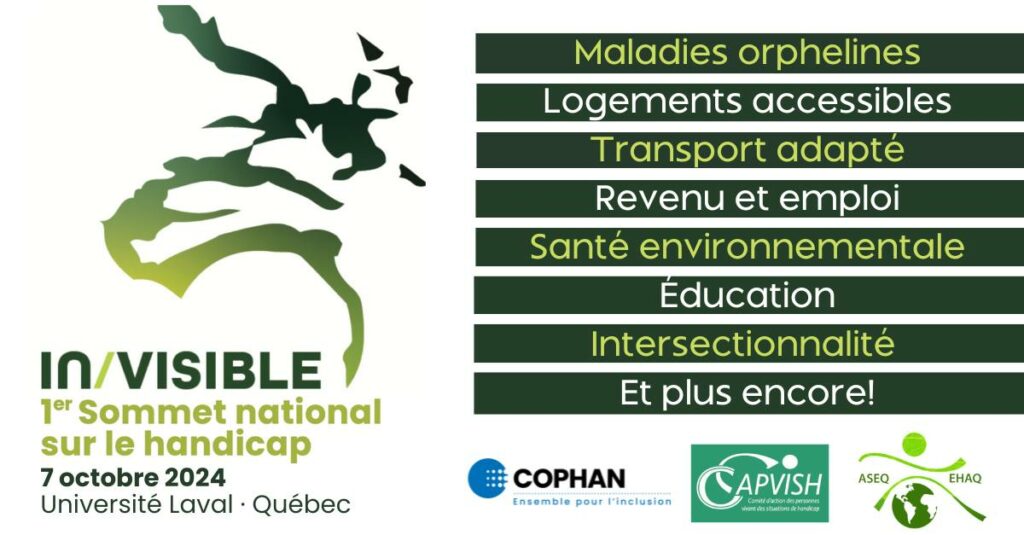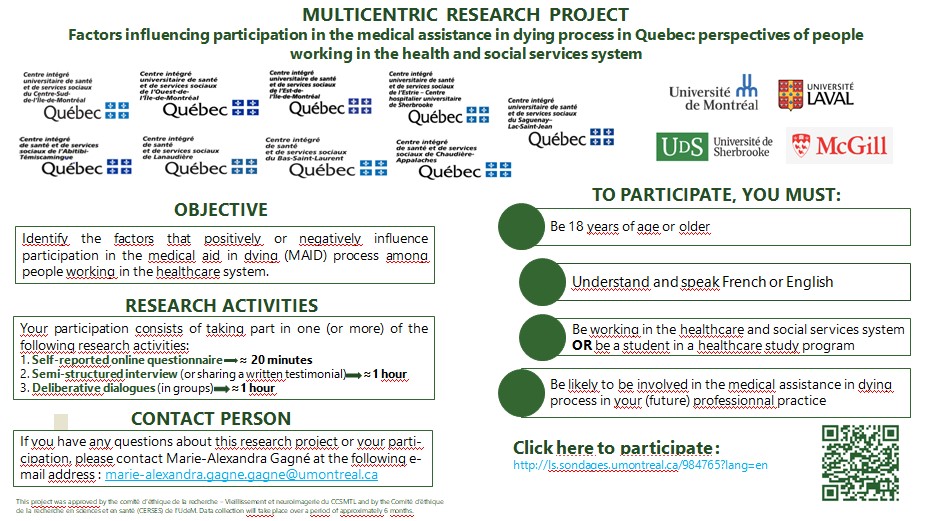It gives me great pleasure to share with you one last newsletter from the Living with Dignity citizen network before a well-deserved summer break.
The spring of 2024 was a milestone for us, thanks to the significant impact of our Aid in Living Campaign. Our radio ads, themed web page, and various media presences, as you’ll see below, helped the convictions we share with you shine through like never before!
In this newsletter, we will also be inviting you to participate in a National Summit on Disability and in a research project for those who are closely or remotely involved in the process of medical aid in dying.
Over the summer, we’ll be working on a variety of projects that we can’t wait to share with you.
May the coming weeks enable you to combine rest and quality time with any loved ones who need your soothing and inspiring presence to help them overcome incapacities related to age, illness, or disability.
We wish you a wonderful summer!
Jasmin Lemieux-Lefebvre
Coordinator
Living with Dignity citizen network
Media coverage of our Aid in Living Campaign
This week, we’ve posted in French a review of press coverage stemming from our campaign launched on May 13 to encourage a loved one not to choose medical aid in dying, with love and respect.
Interviews, columns and rebuttals from the diverse perspectives of LCN, ICI Radio-Canada, La Presse, Le Verbe médias, Radio VM and Radio-Galilée can be found here:
https://vivredignite.org/retombees-campagne-aide-a-vivre
We’re delighted with the visibility given to our campaign, whose content can always be found on aidinliving.org.
National Disability Summit on October 7

On October 7, the Pavillon Alphonse-Desjardins at Université Laval in Quebec City will host the first National Summit on Disability in 40 years!
An initiative of the Confédération des organismes de personnes handicapées du Québec (COPHAN), we are delighted to be taking part.
The event’s slogan is “IN/VISIBLE”, because disable people are visible whenever people think they are being a “nuisance”, yet they become invisible whenever they ask for assistance.
Assistance in living is what they need and here are some of the kinds of assistance which will be discussed at the conference:
– Access to adapted transport;
– Environmental health and multiple chemical sensitivity (MCS);
– privatization of long-term care: the state of play;
– Quebec’s basic income: origins and assessment;
– orphan diseases: recognition and management;
– adapted and accessible housing, etc.
To discover the program or to register (in French):
https://cophan.org/dossiers/participez-au-premier-sommet-national-sur-la-handicap
Factors that influence involvement in the medical aid in dying (MAID) process: invitation to participate in research
Following discussions with researcher Marie-Alexandra Gagné, we strongly encourage anyone who is/will be called upon to participate in the MAiD process, either directly or indirectly, as part of their duties (present or future) to take part. Here is the recruitment letter sent to us by Ms. Gagné:
Hi,
My name is Marie-Alexandra Gagné and I’m a doctoral candidate in bioethics at Université de Montréal, under
the supervision of Bryn Williams-Jones, full professor of bioethics at Université de Montréal, and Vanessa Chenel, department head at CIUSSS de l’Est-de-l’Île-de-Montréal.
As part of my doctoral thesis, I want to identify and understand the factors that positively or negatively influence involvement in the medical aid in dying (MAID) process:
– People currently working in the healthcare system;
– Students who are likely to become involved in the MAiD process after their studies.
Anyone who is/will be called upon to participate in the MAiD process, directly or remotely, as part of their
(future) professional duties, is invited to take part in this project. Here, the notion of participation is broad
and not limited to directly administering MAiD. Participating in the MAiD process can mean you may:
– Receiving a MAiD request
– Providing information on care;
– Accompanying and supporting a person requesting MAiD on a psychosocial level;
– Preparing medication kits;
– Etc.
To do this, I invite you to take part in an anonymous self-report questionnaire lasting 15 to 20 minutes.
To complete the questionnaire,
click here: http://ls.sondages.umontreal.ca/984765?lang=en
Regardless of your opinion of MAID, if you would like to share your experience or concerns about this
care or your involvement in its process, you are invited to do so as part of this research project!
For more information about the study, please contact me by telephone at 514-601-3618 or by e-mail at
marie-alexandra.gagne.gagne@umontreal.ca.
If you know of anyone who might be interested in participating in this project, please feel free to forward this e-mail or provide them with my contact information.
Yours sincerely,
Marie-Alexandra Gagné, M.A., PhD(c)

Press Review
The press review of recent weeks, available on our Wakelet page.
JUL
2024
